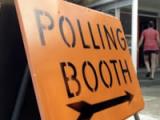Couples − heterosexual or homosexual − were now able to register their relationship as a civil union. All couples in New Zealand, whether married, in a civil union, or in a de facto partnership now had the same legal rights and obligations.
Law
Events In History
On Sunday 2 April 1916, 57 police raided the Ngāi Tūhoe settlement of Maungapōhatu in the Urewera Ranges.
Nicholas Oates appeared in the Christchurch Magistrate's Court charged with driving ‘a motor car within the city at a speed greater than four miles an hour’ on Lincoln Road, Christchurch.
Following the passage of the Female Law Practitioners Act 1896, Ethel Benjamin became the first woman to be admitted as a barrister and solicitor of the Supreme Court of New Zealand.
Articles
History of the Governor-General

New Zealand has had a governor or (from 1917) a governor-general since 1840. The work of these men and women has reflected the constitutional and political history of New Zealand in many ways. Read the full article
Page 6 - Regalised
The constitutional arrangements of the British Empire changed greatly between the creation of the Imperial War Cabinet in 1917 and the passing of the Statute of Westminster in
Page 7 - Patriated
Late last century, New Zealand governments patriated (indigenised) the
Homosexual law reform

The homosexual law reform campaign moved beyond the gay community to wider issues of human rights and discrimination. Extreme viewpoints ensured a lengthy and passionate debate before the Homosexual Law Reform Act was passed in July 1986. Read the full article
Page 2 - Setting the scene
There is a long history of opposition to sexual activity between men and an equally long history of legislation criminalising this
Dominion status

On 26 September 1907 the colony of New Zealand ceased to exist. It became, instead, a dominion within the British Empire. Read the full article
Page 5 - What changed?
What changed when New Zealand became a dominion in
Election Days

When New Zealanders go to the polls on 26 November 2011, they will continue a 158-year-old tradition of parliamentary democracy in this country. Politics may have changed beyond recognition since 1853, but the cut and thrust of the campaign trail, the power of advertising, and the drama of polling day remain as relevant as ever. Read the full article
Page 3 - Cleaning up elections
The New Zealand Parliament was alarmed by reports of electoral abuses in Auckland in the 1850s. It decided that electoral laws needed to be tightened, and in 1858 passed a series
First World War laws and regulations
An annotated index of New Zealand wartime laws and regulations 1914-21 Read the full article
Page 1 - Index of wartime laws and regulations, 1914-21
An annotated index of New Zealand wartime laws and regulations















